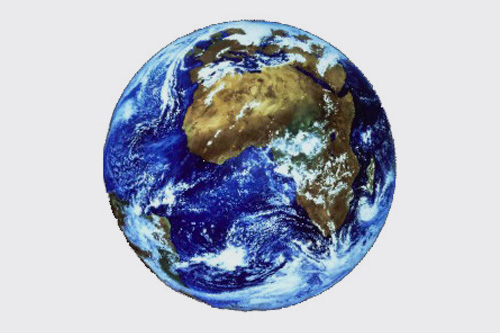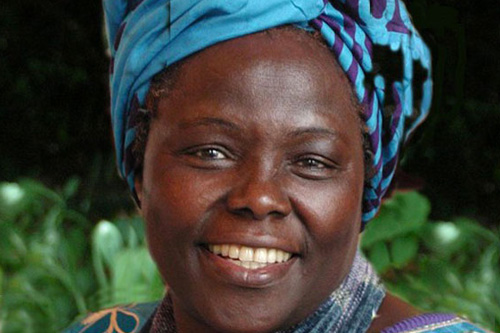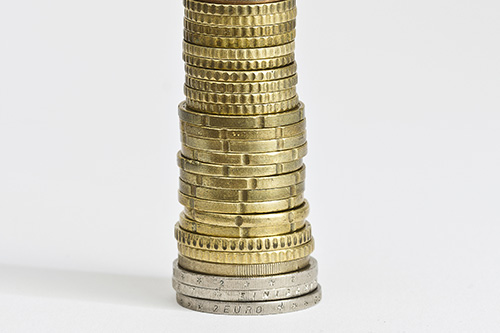
We must now go to war to save the planet. This is our first great fight, and the most important of all. If we don’t win, all else is meaningless. We must change our way of life, and rein in humanity and its impact on the environment. We are destroying the only planet we have. In doing so, we are compromising our children’s futures. This is madness.
But solutions exist. The European Union’s Member States have embarked on a process of taking better care of our planet (the Nordic countries, Luxembourg and Germany are leading this field).
Many European companies have started to specialise in this new niche (industry, consultancy, technology, etc.) All that is lacking is courage and political vision:
Here is our road map:
1. First of all, we must completely abandon fossil fuels as quickly as possible. Burning them is destroying the planet, and they are increasing the wealth of retrograde regimes in the Persian Gulf, with Saudi Arabia leading the way. We must give our full backing to research and innovation geared towards saving the planet; instead of letting our young engineers go off to work in banking or trading, we must put them to work saving the planet. The answers lie in storing energy, and generating electricity from solar power. If the Tesla company (electric cars and household batteries) can achieve this, why can’t Europe and France manage it too?
2. Reforestation. Eleven primary forests are burning before our eyes, while we stand and watch. For how long? Reforestation will also save a large number of animal species that are threatened with extinction as their habitat disappears.
3. Protect the oceans against overfishing, waste and pollution, following the example of the NGO Sea Shepherd.
4. Change our way of life. Eat less meat and better quality meat when we do eat it. Recycle much more, like the city of San Francisco does. Reduce our use of plastic (bottles, bags, etc.)
5. At the same time, change agriculture in favour of the farmers themselves. This is possible, as demonstrated by Mélanie Laurent and Cyril Dion in their film “Tomorrow”.
6. Ban the patenting of living organisms, and restrict companies globally that use genes for economic purposes: Monsanto and the rest.
7. The fight to save the planet no longer belongs to a few new-age hippies. It must no longer be the preserve of a Green party that is on a path of self-destruction due to a culture of oversized egos. We must all engage in this fight: grandparents who want to leave a world fit for their grandchildren to live in, young people who want a more positive future on a healthy planet, and freethinkers who want to restore economic growth…

There is a way to resolve the problems created by the population explosion and the resulting mass immigration; and, in doing so, to increase the rate of economic growth, reduce corruption, and more. The solution is right before our eyes: it’s the fight for women’s rights. In France, Europe and the World.
Let’s consider this issue of mass immigration, which afflicts everyone: the countries unable to provide work and a decent life for their inhabitants, who therefore emigrate en masse; the host countries such as France who are unable to cope with this massive influx: and above all the migrants themselves, who have taken to the roads and are at the mercy of human traffickers, risking death at sea and disease. Hoping that a wall will resolve the problem is a ludicrous idea; this was last attempted in 1940 and it didn’t work then… But seriously, the only way to resolve this problem is to tackle it at its roots: the demographic explosion in some countries. There is just one way of doing this: through the education and emancipation of women. In Bangladesh, a primarily Muslim country, the birth rate has fallen from 5.5 children per woman to 2.2, in 15 years. How? The country has invested in women: educating girls, family planning, freedom of choice for women, upheld by the law. It can be done! It is up to us to help developing countries embark on the path that Bangladesh has taken. We can encourage them to do this through our development aid policy, that we must completely refocus and greatly increase, rooting it in the fight for women’s rights. As well as resolving the migration problem, such a policy will bring greater economic development, reduce corruption, etc. So what are we waiting for?
Closer to home, equality between men and women will bring greater economic growth. These are not START’s words, but those of the highly respected consultancy McKinsey. Here, the fight for women’s rights will take several forms: punishing the sexist insults and physical assaults that so many women fall victim to each day, and that neither the police nor the public prosecutors take seriously; restructuring national representation (as discussed earlier): applying progressive quotas for women in the major decision-making mechanisms of companies and public bodies.

The problem is not the rich in general. We would like everyone to become rich if that is your goal in life: money does not bring happiness, but it can contribute to it. If you are rich, good for you. And if you are rich because you have created value for Society, created jobs in Europe, and helped to redistribute wealth by paying your taxes, then you deserve wholehearted congratulations and thanks.
There is no common social policy. This domain, which covers unemployment, jobs, working conditions, and social protection, falls within the responsibilities of the Member States. The 2007 Lisbon Treaty’s objective of full employment in 2010 has long been forgotten. Europe was unprepared and has had to cope with various types of crisis, from which it has never really emerged (except perhaps in Germany, England, and a few other States). However, although GDP is rising, and the global well-being of populations is increasing (median salary, life expectancy, ownership rates, etc.), the inequalities between the most disadvantaged and the richest seem even greater. Europe must help to reduce these inequalities
The real problem, that we are addressing, is cheats of all types, companies and individuals, and the system and the laws that allow them to cheat. Tax evasion is a scourge. It’s time that Europe proposed fiscal harmonisation in line with the economic goals and the situations of the different Member States. We must bring an end to tax competition between States that enables some large companies to pay no taxes. One example among many is Apple, which pays ridiculously low taxes in Ireland (but avoids payment of taxes in France or anywhere else in Europe), although this company holds $200 billion in cash. The opportunities for tax fraud that current European laws leave open to major groups are scandalous. British and European ministers have the power to change this, but they don’t. So we are going to get rid of them (by getting elected) and do it for them…
Without being destructive, we need to review our processes of redistribution, our laws, and our methods of monitoring and clamping down on cheats. We must also prioritise the efficiency of European institutions. We can’t claim to fight these great inequalities if Europe and its representatives are not setting an example. Alongside this, a concerted effort is needed to put politicians on the straight and narrow; what qualifies these individuals to preach moral rectitude to anyone?
Never forget that it will only take a political, economic or religious crisis for women’s rights to be threatened again. These rights can never be taken for granted. Women, you must remain vigilant for life.
Simone DE BEAUVOIR